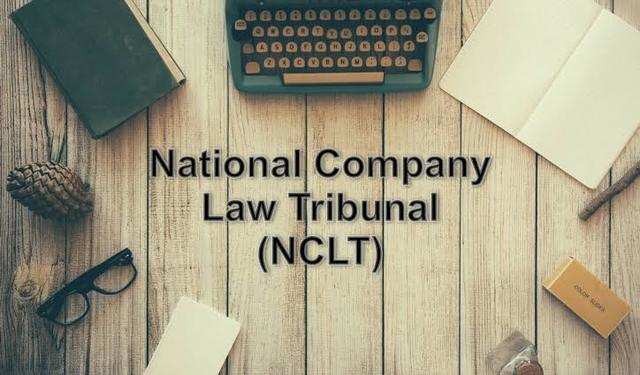The Tug Of War Between Delhivery And Go First, Approaches NCLT With A Notice Citing Go First’s Insolvency As ‘Fraudulent.’
Delhivery declared that Go First accepted payments from Delhivery despite being aware of its future course of action to file for insolvency, arguing that Go First received the board's approval on April 30 to file the plea for voluntary bankruptcy yet took INR 57 Lakh in payments from Delhivery on May 2. NCLT, in its response, has directed Go First's IRP to file a response to Delhivery's submission and listed the matter for hearing on July 24.

Go First’s insolvency bid has a few takers; in yet another controversy surrounding the Wadia group-backed airline, logistics giant Delhivery has reportedly moved the National Company Law Tribunal (NCLT) against Go First, alleging that the beleaguered airline deliberately took payments from it despite heading towards insolvency.
The Gurugram-based company further claimed that the airline received the money despite knowing that it may not be able to render the services even in the future as Go First does not have an operable fleet by its own admission.
Delhivery, in its petition, claimed that the insolvency process of Go First was fraudulent. It accused the airline of accepting a payment of Rs 57 lakh from Delhivery on May 2, the same day it filed for insolvency. Delhivery argued that Go First knowingly accepted the payment despite being aware of its intention to seek voluntary insolvency before the National Company Law Tribunal (NCLT). The NCLT’s two-member bench instructed the Insolvency Resolution Professional (IRP) to respond within two weeks and scheduled the next hearing for July 24.

NCLT Accepts
On Thursday, the National Company Law Tribunal (NCLT) accepted Delhivery’s notice requesting the declaration of Go First’s voluntary insolvency resolution as “fraudulent and malicious.” The NCLT granted a two-week period for the interim resolution professional (IRP) of the Wadia-group airline to provide a response to the notice.
According to Delhivery’s counsel, “Go First knowingly accepted ₹57 lacks on May 2 from Delhivery as an advance payment for future services, despite being fully aware of their intention to file for insolvency.” It is important to note that under Section 65 of the Insolvency and Bankruptcy Code (IBC), 2016, initiating insolvency proceedings fraudulently and maliciously can result in a penalty ranging from Rs. one lakh to Rs. one crore.
The counsel representing the interim resolution professional (IRP) requested the court to include the former management as well. However, the bench instructed the resolution professional to submit a response in the case and scheduled the next hearing for July 24. Delhivery will be given a week to submit a rejoinder following the filing of the carrier’s response.
Go First Financial Chaos
Go First, in its voluntary insolvency resolution application filed under Section 10 of the Insolvency and Bankruptcy Code (IBC), stated that it was unable to fulfil its financial obligations due to the grounding of 50% of its fleet, which it attributed to “faulty engines” from US company Pratt & Whitney. The application was accepted on May 10, initiating the insolvency resolution process for the airline.

Delhivery Not The Only Caught Out In The Dock
Earlier this week, Jackson Square Aviation Ireland Ltd, an aircraft lessor, and Engine Lease Finance (ELF) BV, a lessor of engines, filed applications in the Go First case. They claimed that they had terminated their contracts with Go First on May 3, which was prior to the acceptance of Go First’s Section 10 application on May 10. These applications by the lessors are now part of the ongoing legal proceedings related to Go First’s insolvency matter.
Both Jackson Square Aviation Ireland Ltd and Engine Lease Finance (ELF) BV have appealed to the court, arguing that the moratorium on the airline’s assets, which was imposed after the admission of the voluntary insolvency petition, should not be applicable to the leased assets. Jackson Square had leased eight aircraft to Go First, while Go First has a total of 54 leased aircraft. The lessors are seeking an exemption from the moratorium to protect their leased assets and potentially take appropriate actions regarding their contracts with the airline.
On June 5, another application was filed by BOC Aviation (Ireland) Ltd, a provider of aircraft leasing services. The court directed that a copy of the application be made available to the interim resolution professional (IRP). These matters, including the application from ELF BV and the recent application from BOC Aviation, have been listed for June 15. The senior counsel representing the IRP in the ELF BV case mentioned that the committee of creditors (CoC) would convene in the coming days to discuss and consider the matter.
With this, Delhivery joins a growing list of aggrieved parties that have sought NCLT’s intervention, seeking exemption from the moratorium to recover their dues.

In total, the airline has liabilities to the tune of around INR 11,000 Cr.
While the case pans out in the tribunal, the matter could somewhat pile up additional liabilities for Delhivery, which is already saddled with heavy losses. The logistics major reported losses worth INR 1,007.7 Cr in FY23, narrowing marginally from INR 1,011 Cr in FY22.
The development also weighed heavily on the Gurugram-based logistics player as the stock tanked nearly 1% to INR 354.55 on the BSE on Thursday (June 8)
The Last Bit, Go First became the second airline in the country after Jet Airways to file for insolvency. The Wadia group-backed had maintained it was forced to seek voluntary insolvency resolution proceedings due to “serial failure” of Pratt & Whitney engines resulting in the grounding of 50 per cent of the fleet and thus is no longer in a position to continue to meet its financial obligations.
However, the allegations put by Go First’s business partners is that the company has a lengthy history of missing its financial obligations (Pratt & Whitney, P&W), and now with the latest of Delhivery alleging that the company’s insolvency may be ‘fraudulent’ is yet another argument against Go First.




